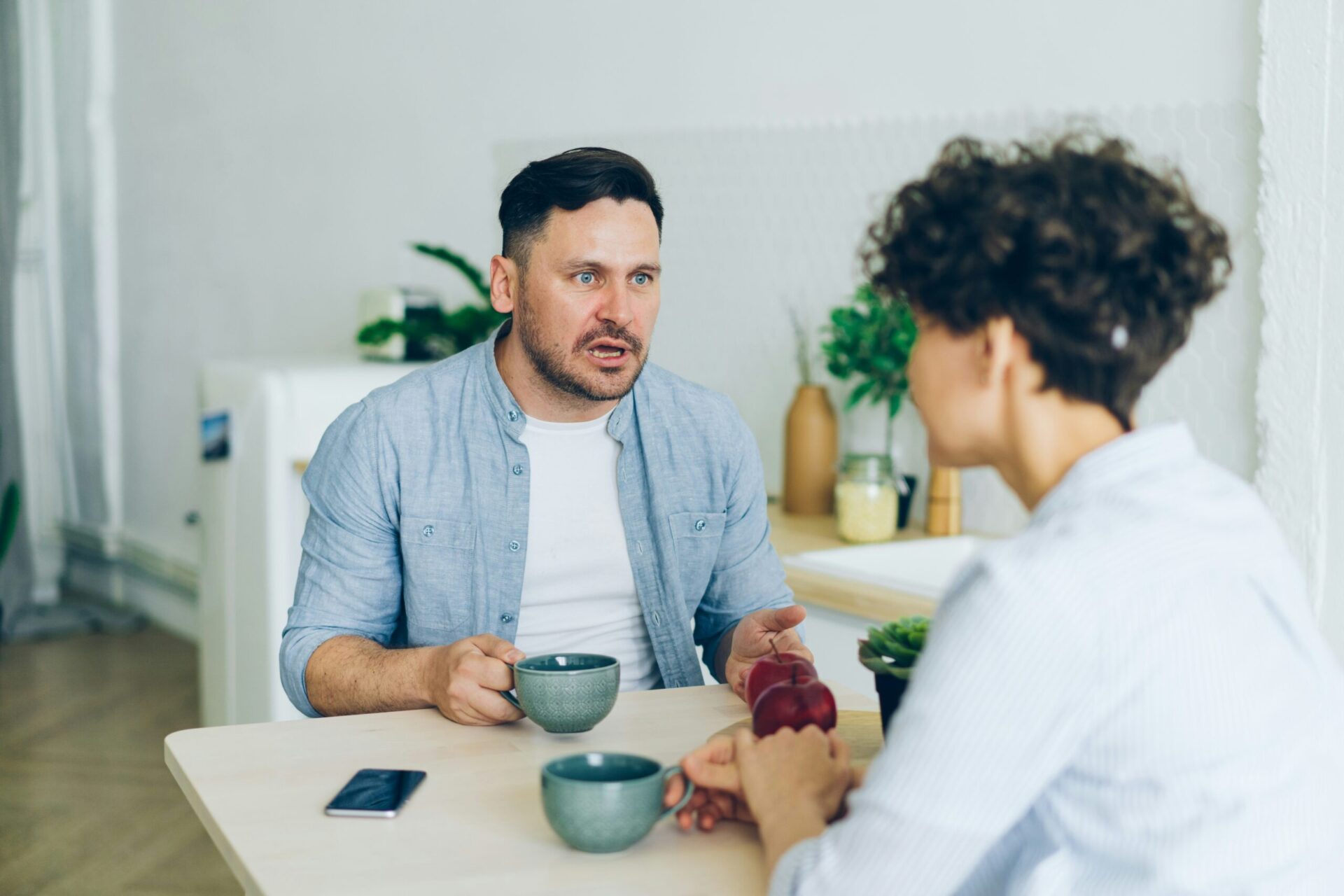It’s heartbreaking when you can’t reach your partner on an emotional level. You want to help your husband overcome emotional avoidance, but you feel loneliness and confusion, watching them shut down during important conversations or avoid talking about their feelings. You might find yourself feeling helpless, wondering why they seem distant.
For him, the experience may be just as confusing and overwhelming. He might feel a tight knot of anxiety in his chest at the mere thought of discussing his emotions. Avoiding these conversations feels like a way to stay safe, protect himself, or maintain peace. Yet, deep down, he may feel trapped between the fear of vulnerability and the desire to connect with you. This emotional avoidance can end up with both of you feeling disconnected and frustrated.
Encouraging your husband to address his emotional avoidance and consider therapy can help break down these walls. This blog explores why emotional avoidance happens and offers practical steps to encourage emotional openness in your relationship.
Understanding Why Your Husband Uses Emotional Avoidance
What Does Avoidance Look Like in Men?
Emotional avoidance occurs when someone actively tries to avoid feeling or discussing difficult emotions. This can be a way of coping with uncomfortable feelings like sadness, anger, or vulnerability. For some, it might mean avoiding conversations that could lead to conflict, while for others, it might mean shutting down emotionally during tense moments.
Can I Help My Husband Overcome Emotional Avoidance?
Yes. It’s important to understand that emotional avoidance often stems from underlying fears – fear of vulnerability, fear of rejection, or fear of being judged. It can also be a learned behavior, especially if someone grew up in an environment where emotions were not openly discussed or were dismissed. Societal norms that pressure men to “be strong” or “not show weakness” can make it harder for some husbands to express their emotions openly. Starting to sound like your husband?
How Emotional Avoidance Impacts Relationships
Strained Communication
When one partner consistently avoids discussing emotions, it creates a barrier to honest communication. This can lead to misunderstandings, unresolved conflicts, and a lack of trust, as one partner feels unheard or unsupported.
Lack of Emotional Intimacy
Emotional avoidance prevents couples from connecting on a deeper level. When genuine emotions are not expressed, the relationship can feel shallow, leaving both partners feeling unfulfilled and disconnected.
Cycles of Distance
Avoidance can create a cycle where one partner pulls away, leading the other to feel rejected or frustrated. This dynamic often repeats, creating a growing emotional distance that is difficult to bridge.
Strategies to Help Your Husband Overcome Emotional Avoidance
Create Safety & Model Openness f
Make it clear that your relationship is a safe space for expressing emotions without judgment. Encourage him to share his feelings and listen actively without interrupting or offering solutions right away. Be open about your own emotions and experiences as a way to model vulnerability and openness. Sharing your feelings can encourage him to do the same, making emotional conversations feel more natural.
Be Patient With Your Husband’s Emotional Avoidance
Overcoming emotional avoidance is a process that takes time. Be patient and recognize that everyone’s journey toward emotional openness looks different. Celebrate small wins and progress, and avoid pressuring him to change overnight.
Gently Introduce the Idea of Therapy
Sometimes having a trained professional can help men to feel comfortable broaching what feels like a very sensitive and overwhelming experience. Suggest that he consider trying therapy to help explore and understand his emotions. Therapy can provide a safe space for processing feelings and gaining insight into what might be driving avoidance.
Encourage Therapy For Your Husband to Process Emotional Avoidance
Approach the Conversation with Empathy
When discussing therapy or emotional issues, it’s important to approach the topic with empathy. Express your concern for his well-being and the relationship, rather than framing the conversation as criticism. Use “I” statements like, “I feel concerned about how distant we’ve been” rather than “You never talk about your feelings.”
Therapy As A Tool for Your Husband to Overcome Emotional Avoidance
Emphasize that therapy isn’t about finding fault but about understanding oneself better and learning to connect more deeply. Discuss how therapy can provide valuable tools for navigating emotions, reducing stress, and improving communication.
Normalize Therapy
Normalize the idea of therapy by discussing it in a positive light. You can share examples of friends, public figures, or even your own experiences where therapy has been helpful. Positioning therapy as a proactive, strong choice rather than a weak last resort can make it more approachable.
Conclusion
Emotional avoidance can create barriers to connection and intimacy in relationships, but there are ways to encourage your husband to open up and even consider therapy. By approaching the topic with empathy, framing therapy as a tool for growth, and creating a safe space for emotional expression, you can help him feel more comfortable confronting his emotions. Overcoming emotional avoidance is a journey.
I can help you work towards building a deeper and more fulfilling connection. Reach out today.

